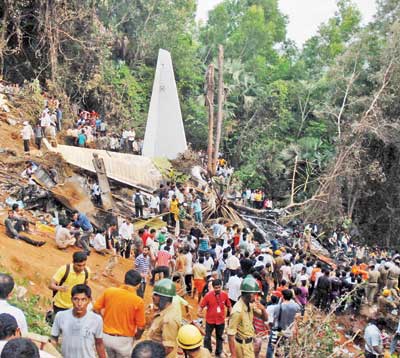
Mumbai, March 9: Member of Civil Aviation Safety Advisory Committee alleges cover-up by investigating agencies to ensure role of AAI, AI, DGCA does not come into question
The investigation report on the ill-fated Air India Express flight 812 that crashed in Mangalore on May 22, 2010 is inviting flak from all quarters.
A top aviation expert, who is associated with the Safety Advisory Committee of the Civil Aviation Ministry, has raised serious doubts over the investigation in the unfortunate incident.
Captain Mohan Ranganathan, former Air India pilot and a member of Civil Aviation Safety Advisory Committee of the Civil Aviation Ministry, has alleged a huge cover-up in the investigation report. "The probe was not the done the way it should have been. It seems the investigating agencies have ensured that the role of Airports Authority of India (AAI), Air India (AI) and Director General of Civil Aviation (DGCA) does not come into question. Besides, the agencies have shifted the entire blame on pilots, which is not true," he contended.
Ranganathan also alleged that it is not the first time this is done to protect interests of the government agencies. "Similar cover-ups were done in all the investigations that I have come across. I have raised this issue time and again with the ministry, aviation secretary and other agencies, but it fell on deaf ears all the time."
Earlier this week, Yeshwant Shenoy, a Mumbai-based lawyer and president of 812 Foundation, an organisation dedicated to the victims of 812 mishap, filed a private complaint before a Mangalore court questioning the role of AAI, AI and DGCA during the crash. Shenoy has demanded a reinvestigation of the case.





Comments
Add new comment